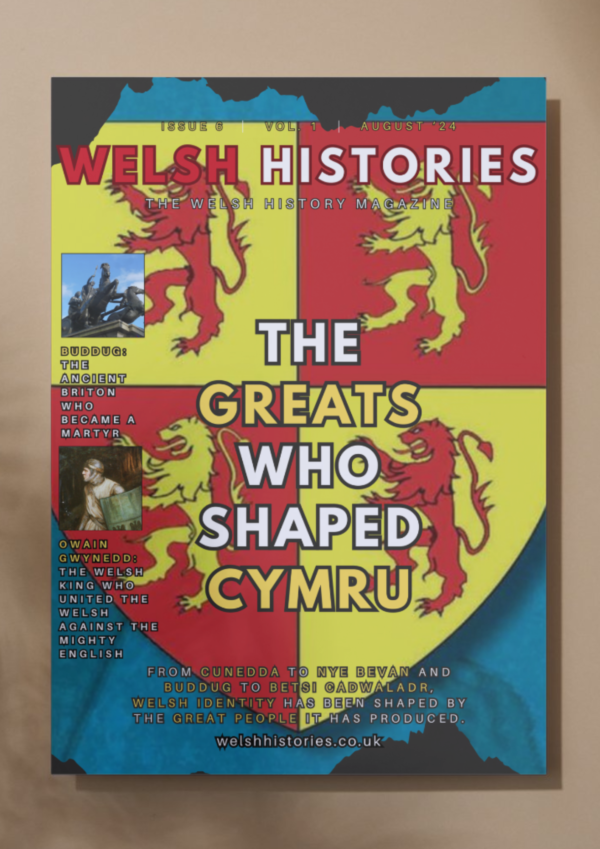Your basket is currently empty!
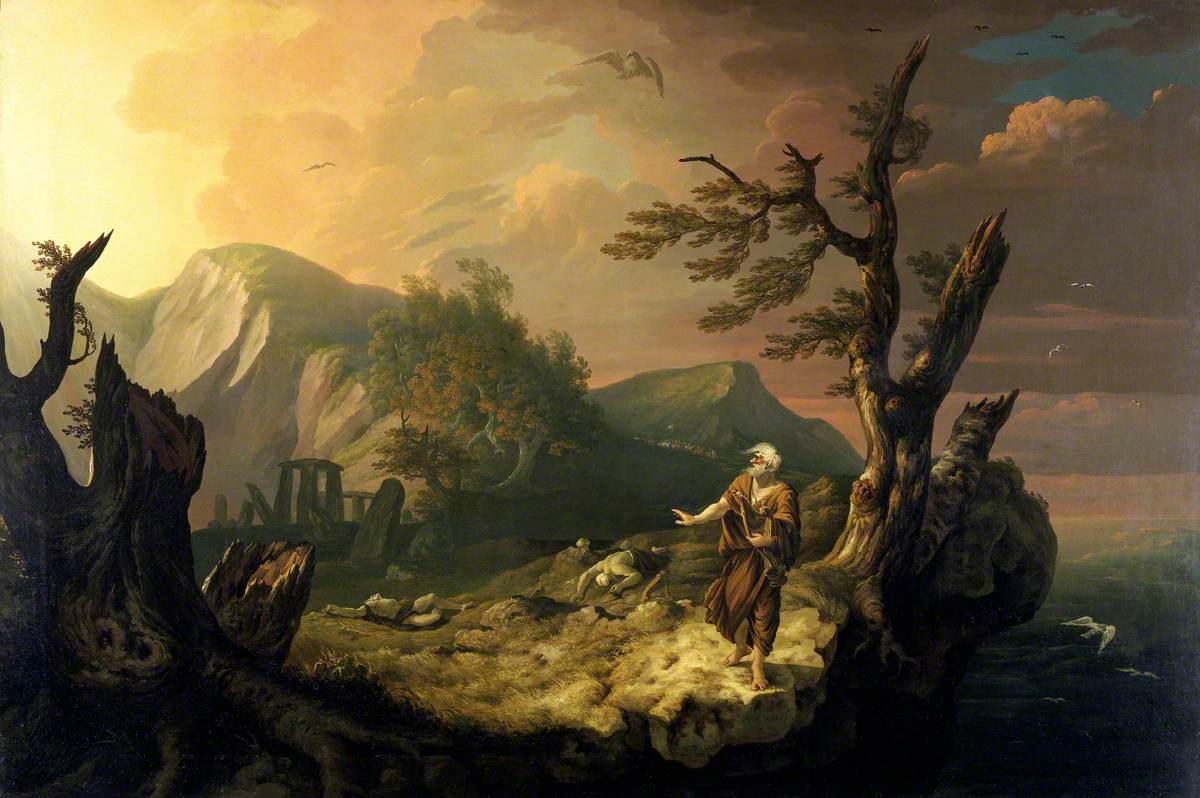
Four Welsh Paintings That Will Take You Back To the Heart of Welsh History
We gathered a list of Welsh paintings featured on our Welsh Histories Facebook page to portray the expression of Welsh history and culture and take you back in time.
#1. The Bard’, a 1774 painting by Thomas Jones.
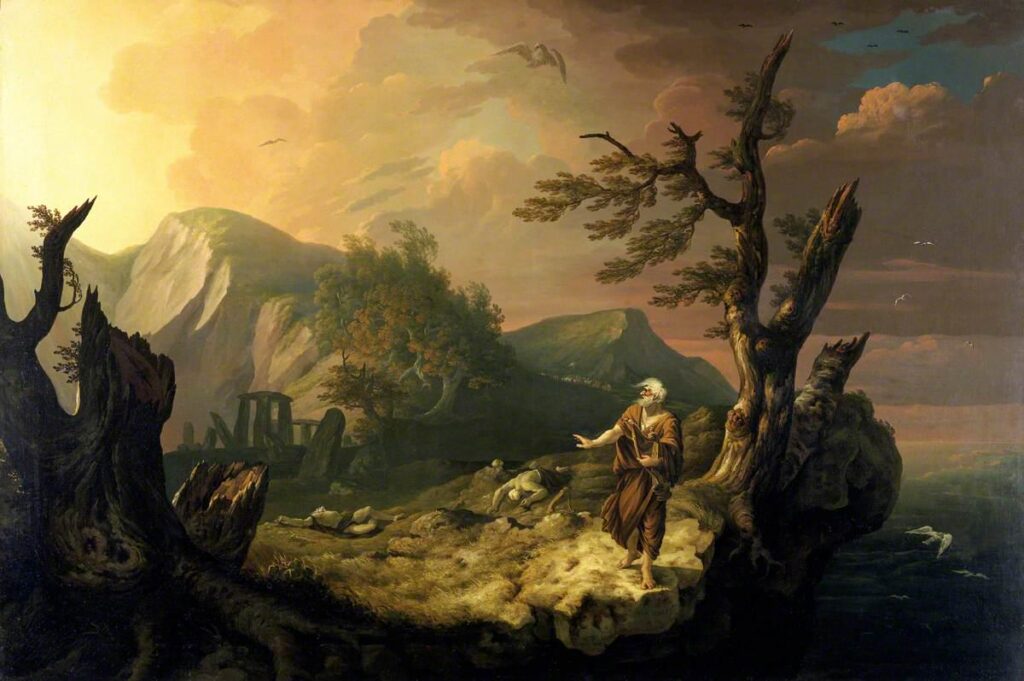
Based on the slightly earlier Thomas Gray poem of the same name (1757), the painting depicts the last surviving bard following the massacre of the Welsh bards by the Norman-English King, Edward I, during the Conquest of Wales (1283).
The bard can be seen cursing the Norman-English invaders (with dead Welshmen lying in front of a stone circle) before throwing himself from the high rock above Afon Conwy to his certain death. The Romantic Era for art had a keen interest in Cymru and its history.
The painting, the poem and the history behind it also inspired another historic event 100 years after the poem was published.
In 1857, János Arany Arany was tasked with writing praise poetry for Austrian Emperor (and King of Hungary) Franz Joseph’s visit.
Instead of using this opportunity to write endless praise and gain the approval of the Emperor, Arany seized the moment to write an analogical poem designed to attack the oppressive regime of the local baron Alexander Von Bach – and he did so with a Welsh analogy.
The poem, titled “The Bards of Wales” (or “A walesi bárdok” in its native tongue) tells how Edward I of England sent “500 Welsh bards to death” at the conclusion of the Edwardian Conquest of Wales in the late 13th century, further adding that it was done “to prevent them from rousing the country and destroying English rule by telling of the glorious past of their nation.”
This was a deliberate comparison to the plight of the Hungarians at the hands of the aforementioned baron. A fascinating comparison by an even more fascinating man.
He also has a plaque in his honour in Montogomery, Powys. This painting is on display at Amgueddfa Cymru.
#2. Castell Dolwyddelan
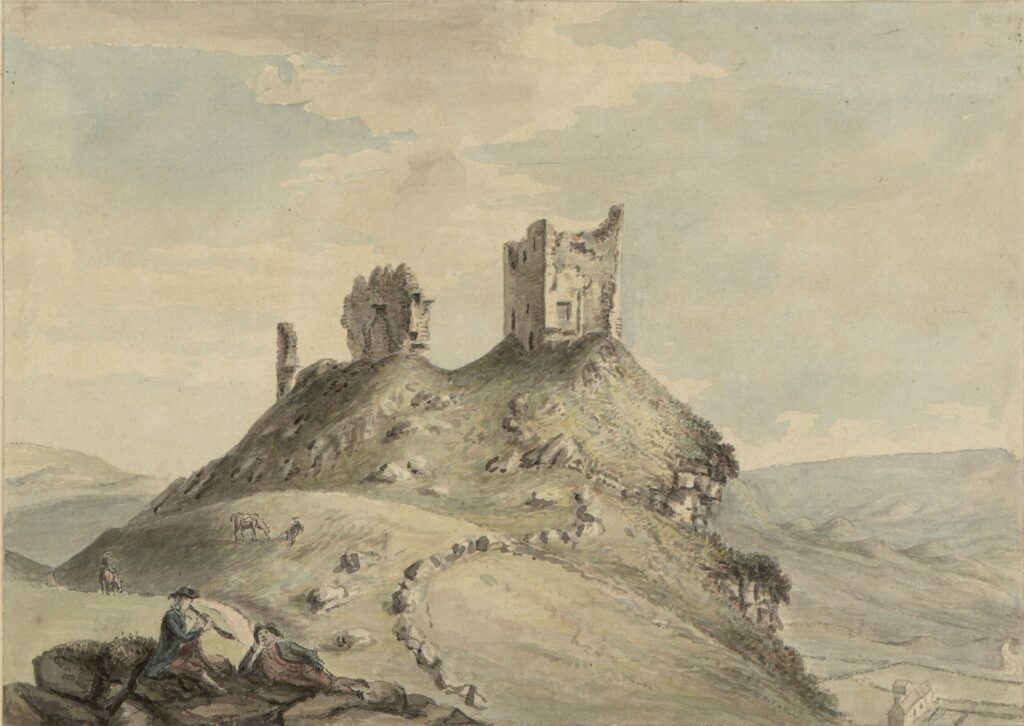
Here is the painting of Castell Dolwyddelan mentioned in my earlier post. It was painted by the Welsh painter Thomas Pennant (1726–1798) of Chwitffordd, Sir y Fflint (Whitford, Flintshire).
Pennant painted Castell Dolwyddelan as part of his “A Tour in Wales” (1770), which was published in 1778.
#3. Llyn-y-Cau.
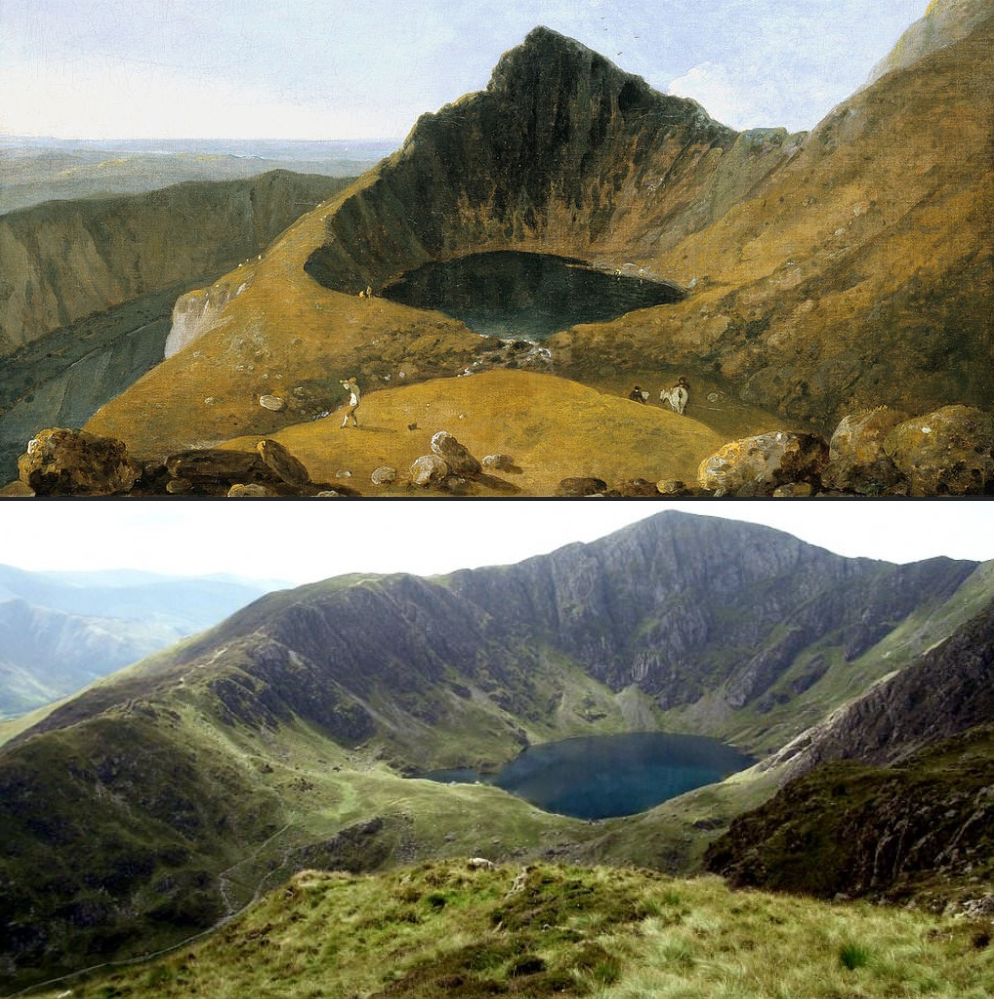
This painting, “Llyn-y-Cau”, comes from famed 18th Century Welsh painter, Richard Wilson (1714-1782), and depicts Cadair Idris, Eryri, Gwynedd.
Beneath is a photograph taken in 2013 of the same spot. It is truly incredible to see how, despite 300 years of difference, nature remains.
Cadair Idris takes its name from a mythological Welsh giant called, what else, Idris. The mountain is said to have been his throne, hence the name. This is, of course, the mythological meaning behind the mountain.
However, there is a possible historical connection with the 7th Century King of Meirionnydd, Idris Gawr (Idris “The Giant”), who is believed to have defeated some Irish invaders in battle upon the mountain.
#4. Snowdon from Llyn Nantlle.
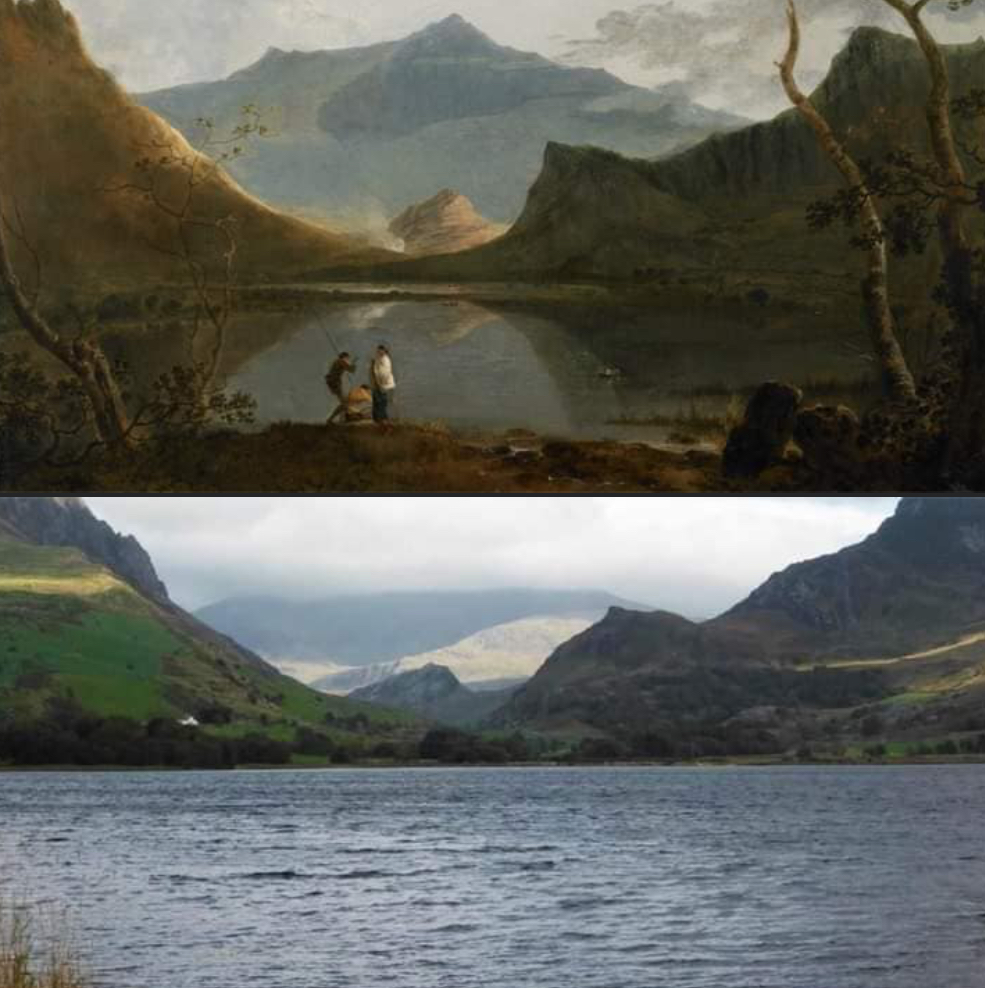
This is the 1766 painting titled “Snowdon from Llyn Nantlle” by the 18th Century Welsh landscape painter, Richard Wilson.
Though perhaps best known for some of his paintings of Italian scenery, such was the trend at the time, he is also known for painting some of Cymru’s natural beauty, including Yr Wyddfa and Cadair Idris.
The attached photograph dates from 2013 and depicts the same view Richard Wilson had when painting one of his most renowned paintings.
READ NEXT
15+ Surprising Facts About Wales I Bet You Didn’t Know
Welsh History Memes That Will Have You Asking, ‘Where Have These Been All My Life?’
“Why is Welsh Different to English When We’re Neighbours?” Woman Explains the Difference
Share us your thoughts on [email protected]
Bestsellers
-
(UK ONLY) YEARLY Subscription Welsh Histories Magazine
£79.99 -
(US & CAN ONLY) YEARLY Subscription Welsh Histories Magazine
£129.99 -
DIGITAL COPY Welsh Histories Magazine – April 2024
Original price was: £2.99.£1.99Current price is: £1.99. -
DIGITAL COPY Welsh Histories Magazine – August 2024
£3.99 -
DIGITAL COPY Welsh Histories Magazine – December 2024
£6.99
More from Welsh Histories
Welsh Histories is a Welsh history celebrating platform which looks to promote all aspects of Welsh history. Though we focus predominantly on native Welsh history, we do also share the non-native aspects from time to time. You can follow us on Facebook; Instagram or Twitter for more. A reader? We also have our very own Welsh Histories Shop where we sell our Welsh Histories Magazine. Diolch yn fawr iawn and keep enjoying Welsh Histories.
Sally is a proud wife of a Welshman, editor & writer of Welsh Histories. She’s all about stories—that shout ‘anything Welsh.’ Drop her an email if you have an advice, insight, experience, or a story to share.



